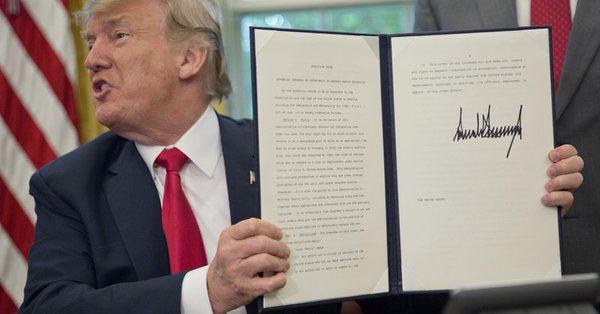It’s Now Clear Why the Iran Agreement Was a Bad Deal
بات واضح جداً أن الإتفاق الإيراني النووي كان سيئاً للغاية
Moshe Arens/Haaretz/June 21/18
While focusing on Iran’s nuclear development, the U.S. and the other signatories missed the main target: Iran’s aggressive plans in the Middle East
Three years have passed since the signing of the nuclear agreement by the permanent members of the UN Security Council plus Germany with Iran. It was opposed by Israel’s Prime Minister Binyamin Netanyahu, by most of the Republican members of the U.S. Senate, but nevertheless signed by U.S. President Barack Obama. Netanyahu was accused of going too far in voicing his opposition before a combined session of the U.S. Congress and of endangering the U.S.-Israeli relationship.
In the past three years many, including some of the signatories, have begun reevaluating the implications of the agreement. U.S. President Donald Trump has decided to reject it, calling for a new really comprehensive agreement. It is becoming clear that the agreement was really a “bad deal,” and U.S.-Israeli relations are better now than ever.
At the time of the signing of the agreement Iran was already on the verge of completing the development of a nuclear device that could be mounted on a ballistic missile. All that was missing to make it a nuclear power was the completion of its ballistic missile development program. The agreement placed no restriction on the development of ballistic missiles by Iran.
It was free to continue this program, while the lifting of sanctions which was part of the agreement provided it with some badly needed resources. In effect the agreement brought Iran closer to becoming a nuclear power – on the verge of being able to assemble a nuclear device and completing the ballistic missile program needed to complement it.
Obama and the other signatories to the agreement did not seem to realize that Iran’s immediate and most urgent aim was the expansion of its influence in the Middle East and that it was looking for the resources that would enable it to pursue these plans. The lifting of the sanctions that was part of the agreement provided these resources and the Iranian involvement in Syria and Yemen followed almost immediately. This may have been of little concern to Obama, who on occasion, acknowledged the right of Iran to be a regional power, which was part of his declared desire to reach out to the Islamic world.
While focusing on Iran’s nuclear development, the U.S. and the other signatories missed the main target: Iran’s aggressive plans in the Middle East. They did not understand who they were dealing with. The result was an agreement that provided Iran with the resources to continue its expansion into the Middle East, while leaving Iran on the threshold of having nuclear warfare capability.
Three years after the signing of the agreement some of the signatories are having second thoughts as they realize the full implications of the accord. While Trump has rejected it outright, keeping American sanctions in place, Germany, France, and Britain are suggesting that the agreement needs to be amended and that Iran’s ballistic missile program has to be addressed.
Tehran is rejecting such suggestions. But the continued sanctions seem to be having an effect on the Iranian economy, which may yet bring Tehran to the table for further negotiations. Israel’s strikes against Iranian targets, and Russian calls for the Iranians to stay away from Israel’s borders may be the beginning of a process that will rectify some of the deficiencies of the “bad deal” signed with Iran three years ago.
Iran remains the major danger facing Israel and the Sunni Arab states. For Israel the massive arsenal of rockets and missiles in the hands of Hezbollah, Iran’s proxy in Lebanon, constitutes a constant and immediate danger to Israel’s civilian population. Neutralizing that danger remains a first priority for Israel and all those interested in peace in the Middle East. The nuclear agreement with Iran just ignored the real danger that Iran poses to the countries of the Middle East























